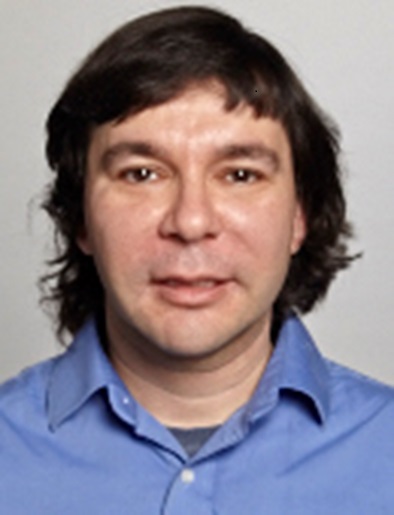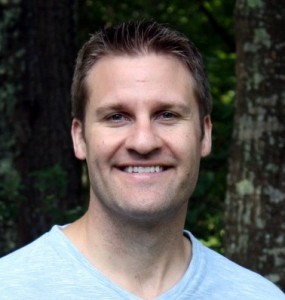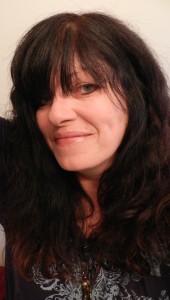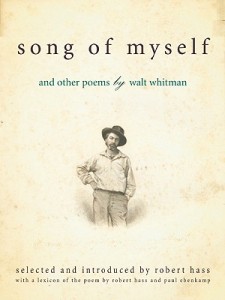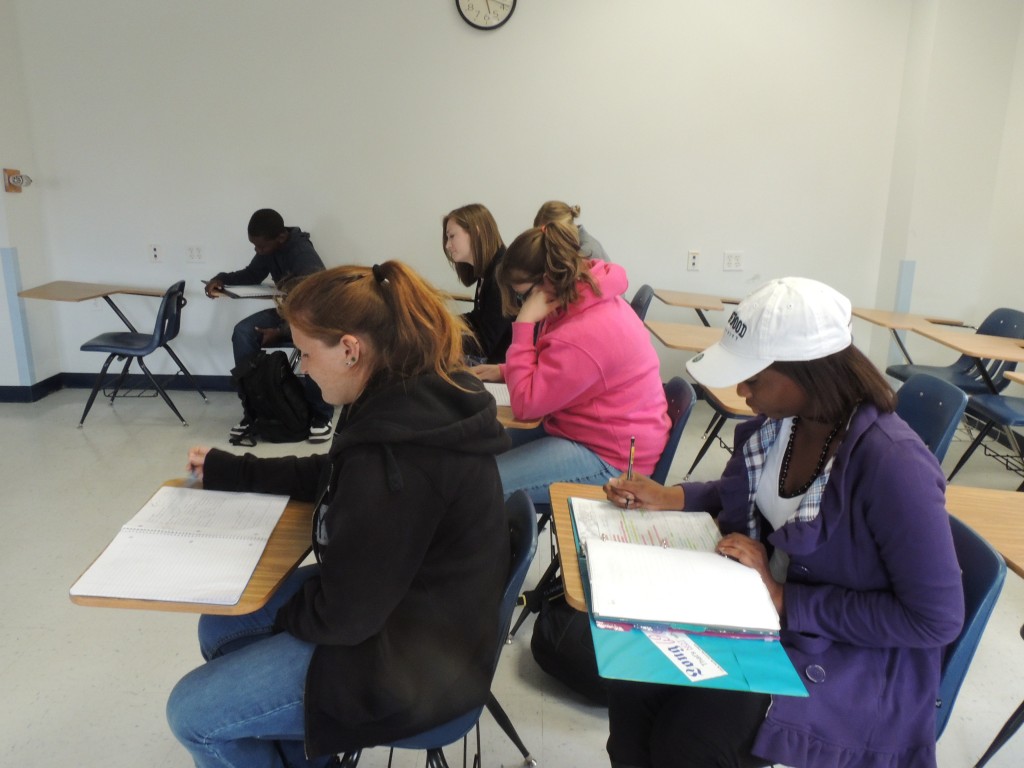 I have a handwritten postcard from Allen Ginsberg. And not some random handwritten postcard I discovered in an antique desk drawer at a flea market, or bought online somewhere. It is handwritten to me. It is, needless to say, one of my most prized possessions. As you might imagine, it is framed and hanging within view of the computer I am typing on at this very moment.
I have a handwritten postcard from Allen Ginsberg. And not some random handwritten postcard I discovered in an antique desk drawer at a flea market, or bought online somewhere. It is handwritten to me. It is, needless to say, one of my most prized possessions. As you might imagine, it is framed and hanging within view of the computer I am typing on at this very moment.
Ginsberg was my first big literary hero—the person I read obsessively, rhapsodized about to others—I carried around my copy of his glorious red-covered Collected Poems everywhere I went. I drove my high school English teacher crazy by insisting I share “America” with the class, “go fuck yourself” and all. I wanted to write like him, and if I am honest with myself, I wanted to be him—free, wild-bearded, hand to the sky and capturing the lightning of electric lines right to the page.
So, I wrote him a letter. Certain I was the first teenager to ever write him and tell him how much his poems meant to me, and how my high school just “didn’t get it” (looking back now, my teacher was more than accommodating of my obsession), I told him how I was also from New Jersey and wanted to be a poet. Much to my surprise, a few weeks later, a postcard was sitting on the kitchen table when I got home (my Mom was smiling when she said “well, you got a postcard today…”). In a cruel twist of fate, he even suggested I come to a reading in the city and introduce myself—but the card arrived the day after the reading (cursed by slow mail over the December holidays). But I had my postcard. My handwritten postcard from my hero. And that was more than enough.
Naturally, in the coming years, I discovered many literary heroes that led me to want to write, each one stepping into the hero role: Raymond Carver, Flannery O’Connor, Denis Johnson, Michael Burkard. . . they all became not only writers I admired, but those that lit fires, guided my own work (often leading to not-so-infrequent unintended homages). With each new hero, the previous faded a bit into the background–needless to say, when my Carver obsession began, my attempts at poems were stripped-down affairs as opposed to the expansive, no-thought-should-be-discarded Ginsbergian approach. Denis Johnson, of course, married those two approaches well, in a sort of tough visionary literature–his poem “The Veil” has remained on my office wall for twenty years. I suppose this sort of admiration is human nature.
Ultimately, the sort of “hero worship” I had early on for Ginsberg was somewhat similar to that of other, earlier incarnations of fandom: my bedroom as a little kid was plastered with posters of Reggie Jackson and Catfish Hunter; my early teenage years saw U2 and REM on those same walls. Ultimately, they made room for Bob Dylan memorabilia; Dylan directly pointed me to Ginsberg, who took up the hero mantle.
When you admire someone so completely, of course, it is only natural to see them not only replaced, but also drift a bit back. At times, we even have to discard them to move past their (encouraging, sparkling) grip. For me, by the end of my undergraduate years, I would say things like “I’ll always love Ginsberg, but…” completing that sentence with phrases like “his Collected Poems could have been half as long” (my precious red book!), or “I’m realizing I can go straight to the source–Whitman!” As time went on though, I kept a place for my hero in my heart–I had my list of lingering poems that still knocked me out, taught him periodically over the years (a visionary literature class here, a political poetry unit there, etc.), even thrilled at going to City Lights Books in San Francisco. But it was never truly quite the same as those first few years in the rush of discovering his work.
Now, though, after a recent event, I realized that my love for Ginsberg was never only about the cult of personality or some cartoon of his “character.” There was–is–real magic in his work, so it was only a matter of time that I would revisit my full force love of his poetry, and role as a poet. In going back to him after all these years, I can appreciate him on a deeper level–embracing what I love, acknowledging any limitations, and feeling the rush of connecting with poetry for the first time again. It’s a great feeling–I encourage all readers to go back to their first heroes and see if it happens for them, too.
My renewed fervor grew out of the most common of occurrences for those of us who write poems–a simple conversation where someone asks “who is your favorite poet?” Or, similarly, but with a bit more breathing room: “who are your favorite poets?” It’s always nice when someone asks this at a party–particularly when you’re the only one there who may write (or publicly acknowledge writing) poems, as you see someone taking an interest in poetry–so often I am pleased to see a real interest out in the “non-poetry” and/or “non-academic” worlds about poems.
That being said, I have also learned over the years that, in those moments, breaking out truly contemporary, or even slightly obscure older, poets leads to blank stares–I have killed many a conversation over the years extolling the virtues of names that didn’t register in the conversation partner. So, typically now I mention someone relatively well-known that I do love, but that will bridge the discussion. Typically a response of “well, it all starts with Whitman and Dickinson” is a solid one, and allows for an engaging conversation. Other names that have worked well in these moments include Langston Hughes, William Carlos Williams, and Elizabeth Bishop (for reference, “One Art” and “The Moose” are very popular; “The Man-Moth” tends to unfortunately be a deal breaker). It should be pointed out, though that mentioning these “classic names” provides a perfect chance to share newer ones, as common ground has been established. Last month I was at a bar where someone asked about poets and I followed up a Whitman reference by saying “and if you want to read some great contemporary work, go find Danez Smith.” Later in the night, that same person came back to me and asked me to repeat the name so he could enter it into his phone for future reference.
But back to Ginsberg–at a recent party, sensing that my conversation partner might have loved the Beats back in the day, I mentioned my old hero. To my shock, this was not met with a positive response–the person, laughing in a good natured way, let me know “Oh no! I can’t stand Ginsberg!” I was surprised at how quickly I snapped back into being that teenager again, with my Ginsberg love back front and center. The good thing, though, as I now realize, is that my hero worship had been replaced with admiration–and in defending his legacy, I could feel myself reconnected with him, and what excites me about poetry, all over again.
I made my case. In a world where everyone can be so cynical, isn’t it refreshing to have his poems out there, in all of their rambling, heart-on-sleeve glory? In a time when it is so necessary, isn’t it exhilarating to read poems facing capital-A America straight on? What lover of poetry didn’t want to break out “America” on November 9, 2016? And have you read “Supermarket in California” recently? It feels fresh and heartbreaking all over again–only now Ginsberg is the one we meet in the grocery store instead of Whitman.
And, if the poetry/politics intersection doesn’t do it for you, there is the personal and spiritual work. The teenage version of me read “To Aunt Rose” and loved it. But as we all get older, and lose people we love, good luck reading it, with its detailed and loving portrait, and not only marveling at its poetry but also tearing up at the emotions. Additionally, the spirituality that runs through so much of the work, with its mix of Judaism and Buddhism, takes us out of the rough observations of the political work and places American life on a different plane–try listening to his reading of “Wichita Vortex Sutra” with Phillip Glass and not feeling like you are floating five feet above the ground.
All of this came out though that party conversation, and I was back in, full force. In doing so, I reconnected with something I loved about poetry from when I first started writing. That night I went home and wrote, and I did the next day, too.
We put our heroes away for a bit for a reason, and we certainly can’t sacrifice what is new in poetry to stay safe in our comfort zones–we would become boring if that happened. At the right time, though, it is worth revisiting them once again, with the deeper understanding that comes from time as well as the larger world of literature. We see them with added depth, but lit by the spark that first excited us about writing. In the end, it leaves us admiring them as writers, not heroes. And I say that as I look up at Allen Ginsberg’s handwriting from 1990 on my wall.
